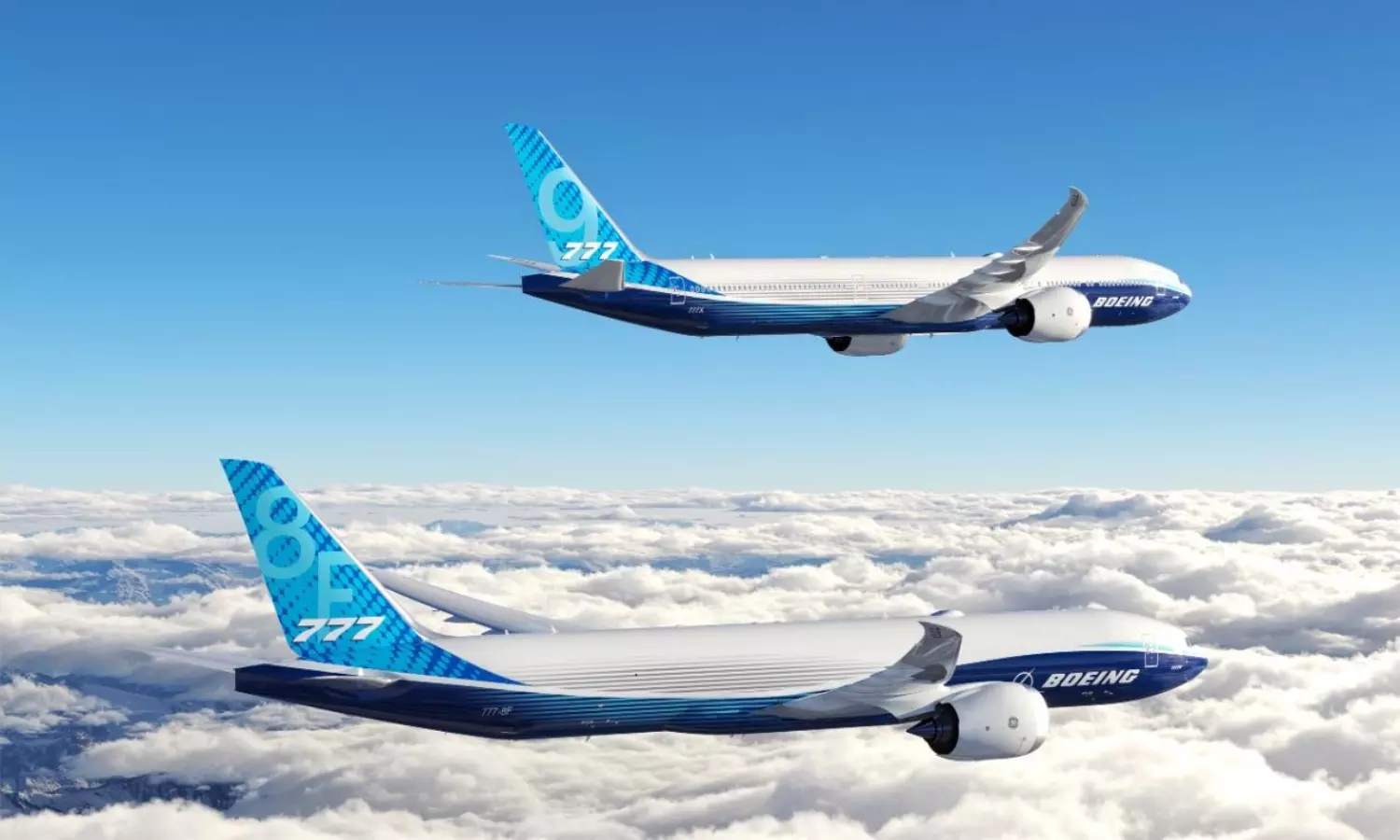Boeing reports lower Q2 revenue of $16.7bn
Boeing received orders for 13 freighters in Q22022 including seven 777-8 freighters from Lufthansa Group.

NYSE-listed The Boeing Company reported a 2 percent decline in second-quarter revenue to $16.7 billion, driven by lower defence volume and unfavourable performance but offset by higher commercial volume.
Earnings per share was $0.32 and core loss per share (non-GAAP) was $0.37, according to an official announcement.
Dave Calhoun, President and Chief Executive Officer, Boeing
"We made important progress across key programmes in the second quarter and are building momentum in our turnaround," says Dave Calhoun, President and Chief Executive Officer, Boeing. "As we begin to hit key milestones, we were able to generate positive operating cash flow this quarter and remain on track to achieve positive free cash flow for 2022. While we are making meaningful progress, we have more work ahead. We will stay focused on safety, quality and transparency, as we drive stability, improve performance, and continue to invest in our future."
"As demand grows across our markets, we are partnering with our supply chain to ensure our industry can meet that demand now and into our future," Calhoun said in an update to employees. "Supply chain constraints and inflation continue to challenge our world – and our industry is no exception. Even with demand high, we won't chase production rates or push our system too fast. With safety and quality at the forefront, we will prioritise stability and predictability because when we get those right, all other metrics will follow.
"This is a pivotal moment in our 106-year legacy – and this team has the opportunity to define our future. Together, we are taking the right actions and heading in the right direction. Our programs are beginning to meet key milestones and our financials are starting to reflect our efforts. Our team is tested, prepared and ready to deliver – and I am confident in our future."
For the first half of 2022, revenue was down 5 percent to $30.7 billion, and loss per share was $1.73.
Commercial airplanes revenue increased 3 percent to $6.2 billion on 53 percent increase in deliveries to 121 (driven by higher 737 deliveries, partially offset by lower 787 deliveries). Loss from operations declined to $242 million for $472 million in Q22021.
For the first half, revenue was up marginally (1 percent) to $10.4 billion on 38 percent higher deliveries at 216. Loss from operations declined to $1.1 billion from $1.3 billion in H12021.
"Boeing has nearly completed the global safe return to service of the 737 MAX and the fleet has flown more than 1.5 million total flight hours since late 2020. The 737 production rate increased to 31 airplanes per month during the quarter.
"On the 787 programme, the company continues to work with the FAA to finalise actions to resume deliveries and is readying airplanes for delivery. The programme is producing at a very low rate and will continue to do so until deliveries resume with an expected gradual return to five per month over time. The company still anticipates 787 abnormal costs of approximately $2 billion with most being incurred by the end of 2023 including $283 million recorded in the quarter."
Commercial airplanes secured orders for 169 737 MAX airplanes and 13 freighters including seven 777-8 freighters from Lufthansa Group. Commercial airplanes backlog included over 4,200 airplanes valued at $297 billion, the statement said.


